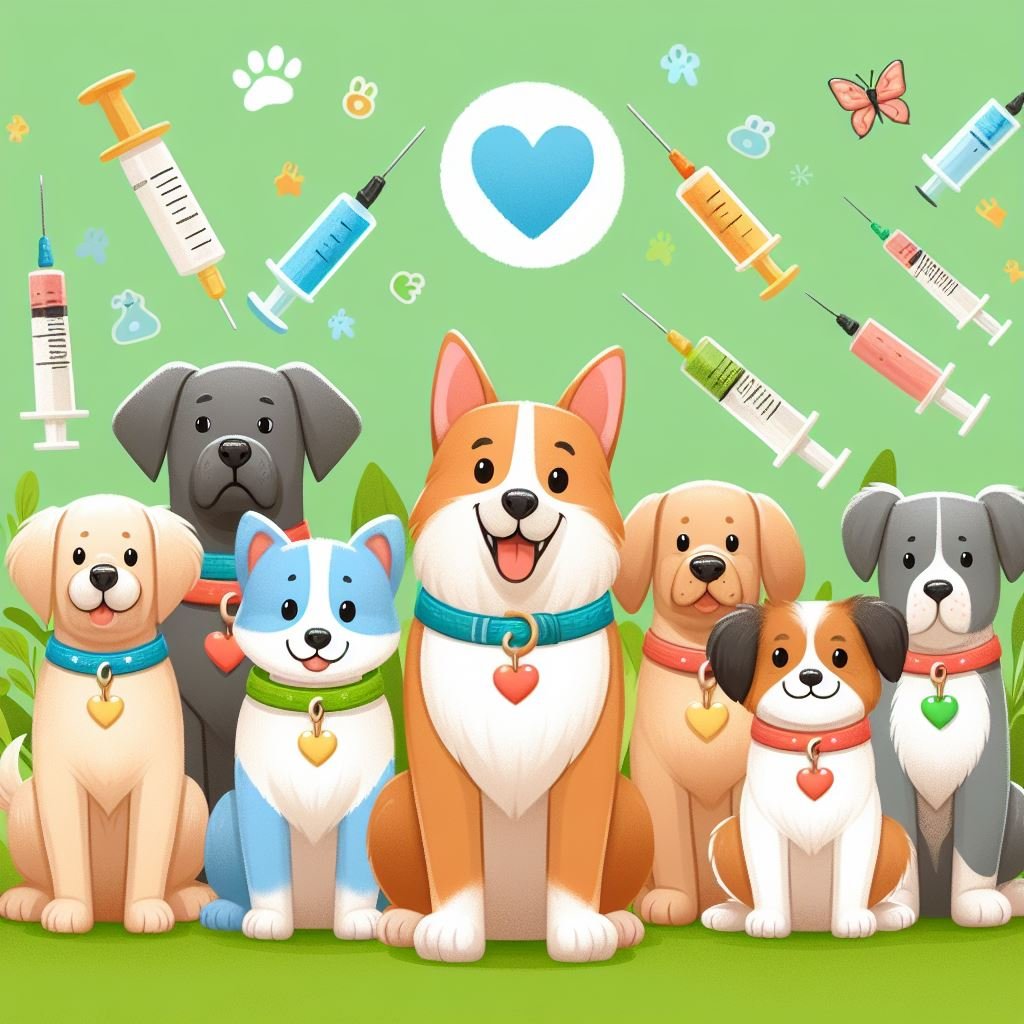As pet owners, we want nothing but the best for our furry friends. We provide them with love, care, and a safe environment to thrive in. One crucial aspect of pet care that often gets overlooked is vaccinations. Vaccinations play a vital role in keeping our pets protected from various diseases, ensuring their overall health and well-being.

Why are vaccinations important?
Vaccinations are essential because they help prevent the spread of harmful diseases among pets. Just like humans, pets can also contract and spread diseases, some of which can be life-threatening. Vaccinations work by stimulating the immune system to produce antibodies that fight off specific diseases. By vaccinating our pets, we are giving their immune systems a head start in defending against potential threats.
Regular vaccinations not only protect our pets but also contribute to the overall health and safety of the entire pet population. Vaccinated pets are less likely to contract and spread diseases to other animals they come in contact with, reducing the risk of outbreaks.
Common vaccinations for pets
There are several vaccinations available for pets, and the specific vaccines your pet needs may vary based on factors such as their age, lifestyle, and geographic location. Here are some common vaccinations recommended for pets:
Rabies
Rabies is a viral disease that affects the central nervous system and is almost always fatal. It can be transmitted to humans through bites or scratches from infected animals. Rabies vaccinations are required by law in many countries to protect both pets and humans from this deadly disease.
Distemper
Distemper is a highly contagious viral disease that affects dogs, cats, and other animals. It can cause respiratory, gastrointestinal, and neurological symptoms and can be fatal, especially in puppies and kittens. Vaccination against distemper is crucial to prevent the spread of this disease.
Parvovirus
Parvovirus is a highly contagious viral disease that primarily affects dogs. It attacks the gastrointestinal system and can cause severe vomiting, diarrhea, and dehydration. Puppies are particularly vulnerable to parvovirus, and vaccination is the best way to protect them from this potentially deadly disease.
Leptospirosis
Leptospirosis is a bacterial disease that can affect both animals and humans. It is transmitted through contact with contaminated water or soil, and infected animals can spread it through their urine. Vaccination against leptospirosis is recommended, especially for dogs that have access to outdoor environments where they may come into contact with the bacteria.
When should you vaccinate your pet?
The timing of vaccinations is crucial to ensure your pet receives the necessary protection. Puppies and kittens typically start their vaccination series at around 6-8 weeks of age. They will require several booster shots at specific intervals to build up their immunity. Adult pets will also need regular vaccinations to maintain their protection against diseases.
It is important to consult with your veterinarian to determine the appropriate vaccination schedule for your pet. They will consider factors such as your pet’s age, health status, and lifestyle to create a tailored vaccination plan.
Are there any risks associated with vaccinations?
While vaccinations are generally safe, there can be some mild side effects such as soreness at the injection site or mild fever. These reactions are usually short-lived and resolve on their own. Serious adverse reactions are rare but can occur. It is essential to discuss any concerns you may have with your veterinarian, who can provide guidance and address any potential risks.
Conclusion
Vaccinations are a crucial part of responsible pet ownership. By ensuring our pets receive the necessary vaccinations, we are taking proactive steps to protect them from potentially life-threatening diseases. Regular vaccinations not only safeguard our pets but also contribute to the overall health and well-being of the entire pet community. Consult with your veterinarian to create a vaccination plan tailored to your pet’s needs, and rest easy knowing you are doing everything you can to keep your furry friend safe and healthy.
